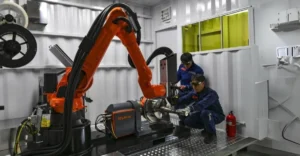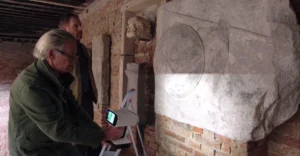Continuity Biosciences invests in PinPrint’s microneedle technology for drug delivery advancement.
Continuity Biosciences has invested in Joseph DeSimone’s high-resolution 3D-printed microneedle technology, paving the way for advanced drug and vaccine delivery systems that could replace traditional injections.
DeSimone, already known for Carbon’s DLS 3D printing, developed the innovative injection CLIP (iCLIP) method that improves resolution and precision of 3D printed microfluidic devices by continuously feeding fresh resin into negative spaces during printing.
PinPrint’s technology creates microneedle patches designed to deliver vaccines and active agents intradermally. “By integrating high-resolution 3D printing with advanced drug delivery, we’re redefining the patient experience across therapeutic and cosmetic categories,” said Dr. DeSimone.
The investment aligns with Continuity’s development of targeted delivery technologies. The company currently works with the Grattoni Lab at Houston Methodist Hospital on implanted nanofluidic platforms.
We are able to transition from implanted nanofluidic systems to a nonimplanted microfluidic platform because of this investment,” said Ramakrishna Venugopalan, PhD, Co-Founder and CEO of Continuity Biosciences. “This investment also permits more precise implementation of dermatologic, aesthetic, and cosmetic agent delivery into the dermis.”
“Dr. Venugopalan, as part of the transaction, will now serve on PinPrint’s board of directors. ‘We welcome Krishna to the board,’ said Renee Ryan, MBA Co-Founder and CEO of PinPrint, Inc. ‘His domain expertise and strategic leadership will be transformational as we redefine what is possible in the drug and vaccine delivery space.’”
Read more : Unique PC Mods You Can Make With a 3D Printer
As previously noted, this partnership greatly extends the capabilities of Continuity’s programs in therapeutics with aesthetic and cosmetic applications.
































